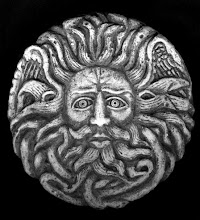I've gone through this book a few times, and I always stumble across bits that stick in my mind. I've decided to read it again, and I figure I'll take notes on it and give some of my thoughts on it here for my own use later and for anyone else who might be interested. This will be an on-going project as I make my way through this again as a secondary philosophical pursuit while I also tangle with Jacques Derrida for the first time (an undertaking which is kicking my intellectual behind right now, btw).
"Science tells us what we can know... Theology, on the other hand, induces a dogmatic belief that we have knowledge where in fact we have ignorance, and by doing so generates a kind of impertinent insolence towards the universe. Uncertainty, in the presence of vivid hopes and fears, is painful, but must be endured if we wish to life without the support of comforting fairy tales. ... To teach how to live without certainty, and yet without being paralyzed by hesitation, is perhaps the chief thing that philosophy, in our age, can still do for those who study it." - p. xiv, Introductory.
This really brought into focus what it is about Russell that's first appealed to me. In my struggles with religion and belief and where it is that I stood, I had never been able to accurately describe what I was or what I believed. I bounced between calling myself a doubter or an atheist, but I knew I had unmanageable problems with the atheistic approach. It wasn't until I read Russell's description of agnosticism and why he embraced it that my own stance was crystallized and became clear. I'm a firm believer that we don't, and in all likelihood can't, know the answer of whether or not there is any form of God out there (regardless of how much we might lean one way or another). With that inability for certain knowledge on either end, the only logically sensible position is to remain undecided and keep searching and pushing. The result can either end up in finding proof of God or in coming asymptotically close to "proving" God doesn't exist (as proving non-existence of anything is rather tricky even in much simpler cases). And so the discussion keeps marching forward.
As a totally irrelevant tangent, this is the first time I've delved into philosophy using an eBook as the text. It's an interesting experience. I've always had that comfort of holding the book in my hands and having that smell of a book as integral parts of the experience, and now I'm just looking at the screen while digesting the words, as my music plays away in the background and I keep cmd-tabbing over here to type some more. It's not better or worse - just a different experience of reading.
Subscribe to:
Post Comments (Atom)




1 comment:
Just from your quotes and the passage you posted on this part of your blog.. I'm thinking I'm going to try to read this. Seems like something I could wrap my head around. :)
Post a Comment